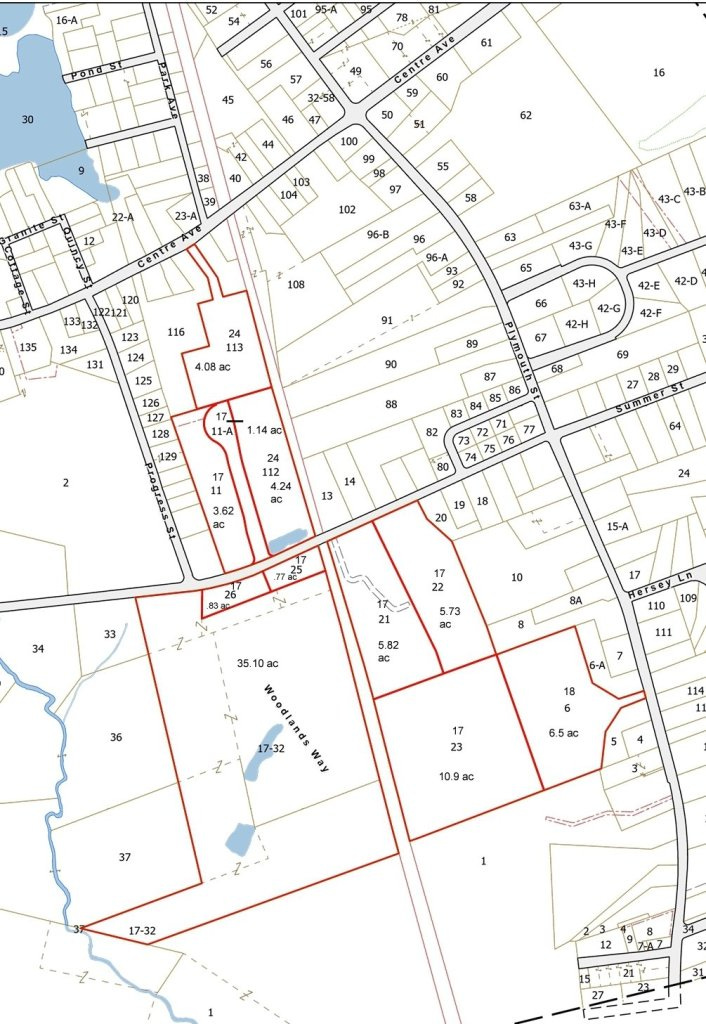Top court backs MBTA zoning law, tosses guidelines
Republished with permission from Abington News
Rick Collins, Abington News Editor
Original story published January 8 at: https://abingtonnews.org/2025/01/08/top-court-backs-mbta-zoning-law-tosses-guidelines/
The state’s highest court today upheld the controversial law requiring MBTA communities to allow multifamily housing, but threw out the accompanying guidelines saying the state adopted them illegally.
The Massachusetts Supreme Judicial Court decision gives communities not yet in compliance with the law a reprieve, as the state now has to go back and redraft its guidelines, which will likely take a few months. Those guidelines included specific deadlines for municipalities to adopt zoning rules that allow multifamily housing near transit stations.
However, the decision also brings new uncertainties to the 116 communities like Abington that have already adopted its multi-family zoning bylaw. Gov. Maura Healey said she’ll be issuing emergency regulations by the end of the week.
The court in its decision made it very clear it supports the law, known as Section 3A, and the state attorney general’s power to enforce it.
“[We] declare that the act creates an affirmative duty for each MBTA community to have a zoning bylaw that allows for at least one district of reasonable size where multifamily housing is permitted as of right… and that the act’s delegation of authority to (the Executive Office of Housing and Liveable Communities) to promulgate guidelines does not violate art. 30 of the Massachusetts Declaration of Rights,” Chief Justice Kimberly Budd wrote.
“We further declare that the Attorney General has the power to bring suit for declaratory and injunctive relief to enforce (the law) and its corresponding guidelines.”
State Attorney General Andrea Campbell sued the Town of Milton last year after it initially approved its own multi-family zoning but then reversed course and rejected it.
The town argued, among other things, that the Legislature had violated the state Constitution by delegating its law-making powers to a state agency, that the state agency did not follow the law when adopting its guidelines, and that the attorney general does not have the power to enforce the law.
Regarding the constitutionality of the law, the justices said the law meet its three-prong test: The Legislature set the larger policy in the law and directed the state agency to implement it; the Legislature provided appropriate guidance on the law; and that the law provided safeguards against abuses of discretion during the rule-setting process.
The court decision restated previous case law that says prohibiting the Legislature from delegating regulatory authority to state agencies would “stop the wheels of government.”
Attorneys for Milton argued that because the law contained specific language outlining what happens if communities fail to comply – they would lose access to certain state grants – Attorney General Andrew Campbell did not have the statutory power to force the town to adopt a multifamily zoning district.
The court disagreed.
“If we were to adopt the town’s interpretation, the only consequence to an MBTA community for failing to comply with the act would be the loss of certain funding opportunities,” the decision reads. “Thus, those communities, like the town in this case, which choose to forgo the identified funding programs, would be free to ignore the legislative decision to require towns benefiting from MBTA services to permit their fair share of multifamily housing near their local MBTA stations and terminals…”
“In light of the Attorney General’s unique and well established role as a protector of public rights, we conclude that the penalties provided for in the act do not preclude the equitable relief that the Attorney General is authorized to pursue under her broad statutory power.”
However, the court agreed with Milton that the Baker Administration did not follow state law when adopting and issuing the guidelines in 2022. The state’s Administrative Procurement Act outlines the process state agencies have to follow when issuing new regulations. This process typically includes prescribed public hearing periods and requirements to publicly post the draft language for public review. The process for adopting guidelines, which the Baker Administration followed, is less stringent.
The justices ruled that even though the Chapter 3A rules are called “guidelines” they are actually “regulations” and subject to the more thorough public review and adoption process. As a result, the court said the current guidelines are “ineffective and, as such, presently unenforceable.”
Gov. Maura Healey called the decision “a major victory for our efforts to increase housing across the state and lower costs.”
It is not clear if the decision renders existing zoning bylaws null and void. Abington Town Meeting approved the town’s new multifamily zoning district last year. Abington Town Manager Scott Lambiase said the town has not yet received any guidance about next steps or whether the town will have to do anything to remain in compliance.
Healey said in a statement that her office will file “emergency regulations by the end of this week” that will take effect immediately.
It’s also not known if state regulators will effectively cut and paste the old guidelines or make significant changes that could send towns like Abington back to the drawing board.
*The rare human written article republished with permission from Abington News. Although it is written for Abington, publishing in the main feed because it applies to all of our towns.


